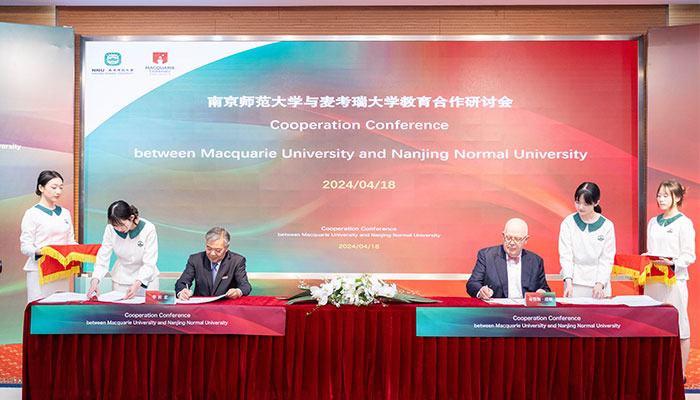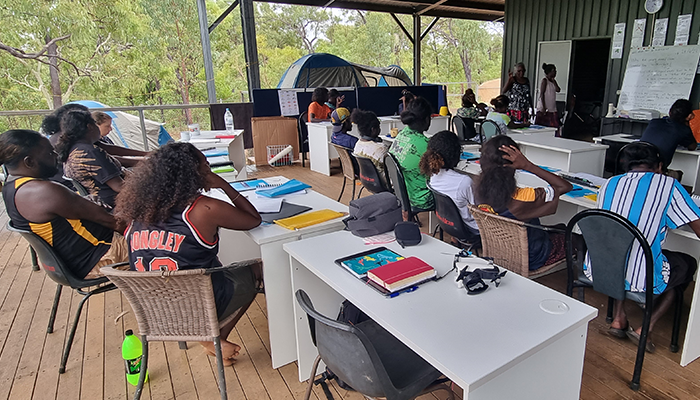Dr David Mullan is an Associated Lecturer of Macquarie Law School. He has taught in areas of corporate law, business law, property law and legal ethics. Dr Mullan’s research interests are corporate law, regulation, financial markets law and property law.
To gain more insight into his research, we asked Dr Mullan a few questions.
How long have you been at a researcher at Macquarie?
I commenced my PhD at Macquarie in 2011. Since completing the PhD I have continued to research at Macquarie.
I was drawn to research because…
I was working as a corporate lawyer helping a client create and sell ‘weather futures’. Put simply, a weather future allows you to buy a sunny, 32 degree day in November. There are all sorts of economic justifications for the existence of these things, but the general madness of what we were doing stuck with me. We were only a year out from the global financial crisis and what we were doing had all the hallmarks of the sort of activities that caused so many problems so recently. I felt a need to work out exactly how the regulation of financial products had changed since the global financial crisis and whether we were being protected from future collapses.
What would be an ‘elevator pitch’ of your research area?
Because of compulsory superannuation, nearly every person in Australia has a substantial amount of money tied up in complex financial products. You are currently trusting that the ‘expert’ who manages your money is doing what she should. It is highly likely that she isn’t.
Research suggests that your superannuation manager would get you the best return by simply buying a representative spread of ASX 200 shares and sitting on them for the next 30 years. Of course, she can’t really do that. When her boss comes to her desk and says ‘what have you been doing all year?’ she needs to be able to provide an answer. What she needs are products which are new enough to give the appearance of contemporaneity and which are complex enough that her boss can’t clearly identify whether she is doing the right thing. It breeds a system of complexity for complexity’s sake, unnecessarily increasing risk and making legal regulation an amazingly complex problem. I want to make sure that the people who create and implement the law understand what your superannuation manager is doing with your money.
In layman’s terms, what is the wider impact of your research?
I believe that the world of high finance is demystified when we examine the differences in the way Australia’s corporate regulator views financial products and the way those who create and trade those financial products view them. The misalignment of perspectives reveals flaws in both perspectives and starts to draw out what it is that the world is really investing its wealth in. The truth is that very little has changed since the Global Financial Crisis and very little will change unless people understand in a clear but simple way what it is that financiers, investors, superannuation managers and other very clever finance people do. I like to think that the first impact is bridging the information and perspective gap between the finance industry and those who make and implement the laws that seek to control the finance industry.
I hope that the second impact is bridging the information and perspective gap between the finance industry and all of the people who are invested in superannuation. Only once people properly understand something can they meaningfully engage in the democratic process to have a say in how they want it regulated. If voters were capable of meaningful participation in the regulation of financial products, then the power to create or avoid the next great financial crisis would be in the hands of the people, rather than a select group of experts who will be blamed – whether or not they were doing what the people would have wanted.
In ten years I see my research. . .
I think that a lot of what is currently occurring in advanced financial capitalist countries such as Australia will become of increasing relevance to countries who will move from a manufacturing economy to a financial economy in the coming decade. At the moment we are seeing China opening a publicly traded derivatives markets. If we can properly investigate and understand the issues facing Australia now, we can hopefully build a more robust system in countries such as China and hopefully avoid some of the crashes that have occurred in Australia, the United States and Western Europe. Passing on these lessons as new countries start opening derivatives and other advanced financial markets is going to be essential to world economic stability. If through research and dissemination of research we are able to stop or at least minimise the first Chinese derivative market crash, we will make Australia a much more comfortable place to live.
My favourite and/or most proud research moment was when. . .
I was interviewing energy traders when I discovered a whole group of people who used to work for Enron Australia. Apparently when Enron collapsed in the US, the Australian arm was still profitable. Amidst the chaos, the entire Enron Australia energy division was sold off and had been operating in Australia ever since. Most saw the collapse of Enron as a great tragedy and expressed the sort of views on Enron that one would expect. There was one trader though who reminded me why I was doing this research. Without the slightest sense of hesitation he told me that the problem with Enron ‘wasn’t the fraud. It’s that they didn’t go “hard enough”’. Whenever I begin to feel that my research is trivial or lacks meaning, I think back to that statement and remind myself that there is still a very important, primarily unregulated industry with very real dangers lurking in the shadows.
To gain more insight into his research, we asked Dr Mullan a few questions.
How long have you been at a researcher at Macquarie?
I commenced my PhD at Macquarie in 2011. Since completing the PhD I have continued to research at Macquarie.
I was drawn to research because…
I was working as a corporate lawyer helping a client create and sell ‘weather futures’. Put simply, a weather future allows you to buy a sunny, 32 degree day in November. There are all sorts of economic justifications for the existence of these things, but the general madness of what we were doing stuck with me. We were only a year out from the global financial crisis and what we were doing had all the hallmarks of the sort of activities that caused so many problems so recently. I felt a need to work out exactly how the regulation of financial products had changed since the global financial crisis and whether we were being protected from future collapses.
What would be an ‘elevator pitch’ of your research area?
Because of compulsory superannuation, nearly every person in Australia has a substantial amount of money tied up in complex financial products. You are currently trusting that the ‘expert’ who manages your money is doing what she should. It is highly likely that she isn’t.
Research suggests that your superannuation manager would get you the best return by simply buying a representative spread of ASX 200 shares and sitting on them for the next 30 years. Of course, she can’t really do that. When her boss comes to her desk and says ‘what have you been doing all year?’ she needs to be able to provide an answer. What she needs are products which are new enough to give the appearance of contemporaneity and which are complex enough that her boss can’t clearly identify whether she is doing the right thing. It breeds a system of complexity for complexity’s sake, unnecessarily increasing risk and making legal regulation an amazingly complex problem. I want to make sure that the people who create and implement the law understand what your superannuation manager is doing with your money.
In layman’s terms, what is the wider impact of your research?
I believe that the world of high finance is demystified when we examine the differences in the way Australia’s corporate regulator views financial products and the way those who create and trade those financial products view them. The misalignment of perspectives reveals flaws in both perspectives and starts to draw out what it is that the world is really investing its wealth in. The truth is that very little has changed since the Global Financial Crisis and very little will change unless people understand in a clear but simple way what it is that financiers, investors, superannuation managers and other very clever finance people do. I like to think that the first impact is bridging the information and perspective gap between the finance industry and those who make and implement the laws that seek to control the finance industry.
I hope that the second impact is bridging the information and perspective gap between the finance industry and all of the people who are invested in superannuation. Only once people properly understand something can they meaningfully engage in the democratic process to have a say in how they want it regulated. If voters were capable of meaningful participation in the regulation of financial products, then the power to create or avoid the next great financial crisis would be in the hands of the people, rather than a select group of experts who will be blamed – whether or not they were doing what the people would have wanted.
In ten years I see my research. . .
I think that a lot of what is currently occurring in advanced financial capitalist countries such as Australia will become of increasing relevance to countries who will move from a manufacturing economy to a financial economy in the coming decade. At the moment we are seeing China opening a publicly traded derivatives markets. If we can properly investigate and understand the issues facing Australia now, we can hopefully build a more robust system in countries such as China and hopefully avoid some of the crashes that have occurred in Australia, the United States and Western Europe. Passing on these lessons as new countries start opening derivatives and other advanced financial markets is going to be essential to world economic stability. If through research and dissemination of research we are able to stop or at least minimise the first Chinese derivative market crash, we will make Australia a much more comfortable place to live.
My favourite and/or most proud research moment was when. . .
I was interviewing energy traders when I discovered a whole group of people who used to work for Enron Australia. Apparently when Enron collapsed in the US, the Australian arm was still profitable. Amidst the chaos, the entire Enron Australia energy division was sold off and had been operating in Australia ever since. Most saw the collapse of Enron as a great tragedy and expressed the sort of views on Enron that one would expect. There was one trader though who reminded me why I was doing this research. Without the slightest sense of hesitation he told me that the problem with Enron ‘wasn’t the fraud. It’s that they didn’t go “hard enough”’. Whenever I begin to feel that my research is trivial or lacks meaning, I think back to that statement and remind myself that there is still a very important, primarily unregulated industry with very real dangers lurking in the shadows.



